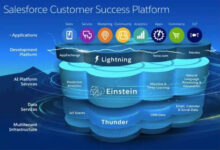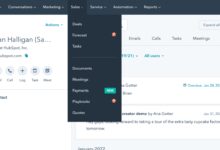Salesforce CRM Pricing: 7 Shocking Truths You Must Know in 2024
Navigating Salesforce CRM pricing can feel like decoding a secret language. With tiered plans, add-ons, and hidden costs, it’s easy to get overwhelmed. But understanding the real cost structure is crucial for any business aiming to scale smartly. Let’s break it down—clearly and completely.
Salesforce CRM Pricing: The Complete Breakdown for 2024

Salesforce CRM pricing is one of the most discussed topics in the world of customer relationship management. As the market leader, Salesforce offers powerful tools, but its pricing model is notoriously complex. Unlike many SaaS platforms with transparent flat-rate pricing, Salesforce uses a modular, per-user, per-month structure that can quickly escalate in cost depending on your needs.
At its core, Salesforce CRM pricing starts from the Essentials plan and scales up through Professional, Enterprise, and Unlimited editions. Each tier unlocks more features, customization, automation, and support. However, the base price is just the beginning. Additional costs come from user licenses, add-on products like Sales Cloud or Service Cloud, data storage, and premium support.
According to Salesforce’s official website, the CRM Essentials plan starts at $25 per user per month when billed annually. But this is just the entry point. Most mid-sized and enterprise businesses end up on the Enterprise or Unlimited tiers, where costs can exceed $300 per user per month.
Why Salesforce CRM Pricing Is So Complex
The complexity of Salesforce CRM pricing stems from its modular architecture. Salesforce doesn’t sell a one-size-fits-all product. Instead, it offers a platform where businesses can pick and choose the components they need. This flexibility is powerful—but it also makes cost prediction difficult.
- Salesforce sells by user license, not by company size or usage.
- Each edition includes a different set of features, APIs, and automation tools.
- Add-ons like Marketing Cloud, Pardot, or Einstein AI come at extra cost.
- Implementation, training, and customization are typically billed separately.
“Salesforce doesn’t just sell software—it sells a transformation.” — Gartner
How Salesforce CRM Pricing Compares to Competitors
When evaluating Salesforce CRM pricing, it’s essential to compare it with alternatives like HubSpot, Zoho CRM, and Microsoft Dynamics 365. While Salesforce is often more expensive, it also offers deeper customization, scalability, and integration capabilities.
- HubSpot CRM offers a robust free plan and paid tiers starting at $45/month.
- Zoho CRM starts at $14/user/month, making it far more affordable for small teams.
- Microsoft Dynamics 365 starts at $65/user/month but integrates tightly with Office 365.
Despite higher costs, Salesforce maintains a 19.8% market share in CRM, the largest globally (Statista, 2023). This dominance is due to its ecosystem, AppExchange, and AI-powered tools like Einstein Analytics.
Salesforce CRM Pricing Tiers Explained: From Essentials to Unlimited
To truly understand Salesforce CRM pricing, you need to dissect each edition. The four main CRM editions—Essentials, Professional, Enterprise, and Unlimited—offer increasing levels of functionality, support, and scalability. Choosing the right one depends on your business size, industry, and long-term goals.
1. Salesforce CRM Essentials: Best for Small Businesses
The Essentials plan is designed for small businesses with basic CRM needs. Priced at $25/user/month, it includes core features like contact management, lead tracking, email integration, and basic reporting.
- Limited to 10 users maximum.
- No workflow automation or advanced customization.
- Ideal for startups or solopreneurs testing Salesforce.
While affordable, Essentials lacks the automation and integration capabilities needed for growth. It’s a starting point, not a long-term solution for scaling businesses.
2. Salesforce CRM Professional: The Mid-Tier Powerhouse
Priced at $80/user/month, the Professional edition is where Salesforce begins to shine. It includes workflow automation, custom reports, API access, and role-based security.
- Supports unlimited users.
- Includes Sales Cloud and Service Cloud features.
- Allows basic customization via point-and-click tools.
This tier is ideal for small to mid-sized businesses that need automation but don’t require full-scale development access. However, it still restricts programmatic customization (Apex code), which is reserved for higher tiers.
3. Salesforce CRM Enterprise: For Growing Organizations
At $165/user/month, the Enterprise edition unlocks full customization, sandbox environments, and advanced security controls. This is where Salesforce becomes a true platform.
- Full API access and Apex programming allowed.
- Dedicated sandbox for testing changes.
- Advanced workflow rules and approval processes.
Enterprise is the go-to choice for companies with in-house developers or those using third-party consultants. It’s also required for complex integrations with ERP, marketing automation, or legacy systems.
4. Salesforce CRM Unlimited: The Premium Experience
Priced at $330/user/month, the Unlimited edition includes everything in Enterprise plus 24/7 premium support, additional storage, and priority access to new features.
- Includes unlimited sandboxes.
- Enhanced customer support with faster response times.
- Ideal for large enterprises with mission-critical CRM needs.
While expensive, Unlimited reduces operational risk and ensures maximum uptime. It’s commonly used by Fortune 500 companies and global organizations with complex CRM requirements.
Salesforce CRM Pricing for Sales Cloud vs Service Cloud
Salesforce CRM pricing varies significantly depending on whether you’re using Sales Cloud, Service Cloud, or both. These are specialized modules built on the Salesforce platform, each tailored to specific business functions.
Sales Cloud Pricing: Driving Revenue Growth
Sales Cloud is Salesforce’s flagship sales automation tool. It helps teams manage leads, track opportunities, forecast revenue, and automate follow-ups. Pricing for Sales Cloud aligns with the main CRM editions:
- Sales Cloud Starter: $25/user/month (similar to CRM Essentials).
- Sales Cloud Professional: $80/user/month.
- Sales Cloud Enterprise: $165/user/month.
- Sales Cloud Unlimited: $330/user/month.
Additional features like Einstein Lead Scoring or Sales Analytics cost extra. For example, Einstein Analytics starts at $75/user/month. According to Salesforce’s official Sales Cloud pricing page, most mid-market companies spend between $100–$200 per user per month when factoring in add-ons.
Service Cloud Pricing: Elevating Customer Support
Service Cloud is designed for customer service teams. It includes case management, knowledge bases, omnichannel routing, and AI-powered chatbots. Its pricing structure mirrors Sales Cloud:
- Service Cloud Essentials: $25/user/month.
- Service Cloud Professional: $80/user/month.
- Service Cloud Enterprise: $165/user/month.
- Service Cloud Unlimited: $330/user/month.
Advanced features like Digital Engagement (live chat, social media integration) or Field Service Lightning start at $150/user/month. For companies running 24/7 support centers, total costs can easily exceed $400/user/month.
Can You Mix Sales and Service Cloud? Cost Implications
Yes, many organizations use both Sales and Service Cloud together. However, Salesforce does not offer a bundled discount for combining them. Each user license must be purchased separately for each cloud.
- A sales rep using Sales Cloud: $165/month (Enterprise).
- A support agent using Service Cloud: $165/month (Enterprise).
- If one user needs both, they require two licenses: $330/month.
This licensing model can lead to significant cost duplication. Some companies mitigate this by using Salesforce Platform licenses for cross-functional users, which cost $25/month but offer limited functionality.
Salesforce CRM pricing – Salesforce CRM pricing menjadi aspek penting yang dibahas di sini.
Hidden Costs in Salesforce CRM Pricing You Can’t Ignore
The advertised Salesforce CRM pricing is just the tip of the iceberg. Many businesses underestimate the total cost of ownership (TCO) because they don’t account for implementation, training, customization, and ongoing maintenance.
Implementation and Setup Fees
Unlike simpler CRMs, Salesforce often requires professional implementation. This includes data migration, workflow design, and integration with existing systems. Hiring a Salesforce consultant or partner can cost anywhere from $5,000 to $100,000+, depending on complexity.
- Small businesses: $5,000–$15,000.
- Mid-sized companies: $25,000–$50,000.
- Enterprises: $100,000+.
Some partners offer fixed-fee packages, while others bill hourly at $150–$300/hour. These costs are rarely included in Salesforce CRM pricing quotes.
Customization and Development Costs
While Salesforce offers drag-and-drop customization, complex workflows often require Apex coding, Lightning components, or third-party apps from AppExchange. Custom development can add $10,000–$50,000 annually for ongoing enhancements.
- Building custom objects or triggers: $2,000–$10,000.
- Integrating with ERP or marketing tools: $5,000–$20,000.
- Monthly maintenance and updates: $1,000–$5,000.
These costs are often overlooked in initial budgeting but are critical for long-term success.
Training and Adoption Expenses
Even the best CRM fails if users don’t adopt it. Salesforce training programs—whether internal or through certified partners—can cost $500–$2,000 per user. For a 50-person team, that’s $25,000–$100,000 in training alone.
- Admin training: $1,500–$3,000 per admin.
- User onboarding workshops: $500–$1,000 per session.
- Ongoing coaching and support: $2,000+/month.
Low adoption rates can render your Salesforce investment ineffective, making training a non-negotiable cost.
Salesforce CRM Pricing for Nonprofits and Education
Salesforce offers discounted pricing for nonprofit organizations and educational institutions through its Power of Us Program. This initiative provides up to 90% off standard pricing, making Salesforce accessible to mission-driven organizations.
Nonprofit Cloud Pricing and Discounts
Nonprofit Cloud is built on the Salesforce platform and includes donor management, grant tracking, and volunteer coordination. Eligible nonprofits can receive:
- 10 free Salesforce Enterprise Edition licenses.
- Additional licenses at 50%–90% discount.
- Free access to Nonprofit Cloud for up to 10 users.
To qualify, organizations must be registered 501(c)(3) nonprofits or equivalent. The application process is handled through Salesforce.org, which also offers free training and implementation resources.
Education Cloud and Campus Management Solutions
Education Cloud helps schools, colleges, and universities manage student lifecycles, alumni relations, and fundraising. Pricing is customized based on institution size and needs, but discounts are substantial.
- K–12 schools: Often receive free or heavily discounted licenses.
- Universities: Pay reduced rates for large-scale deployments.
- Faculty and staff access: Subsidized or free for core users.
Many educational institutions use Salesforce to replace legacy SIS (Student Information Systems) with modern, cloud-based platforms.
How to Apply for Salesforce Discounts
Applying for Salesforce’s nonprofit or education discounts is straightforward but requires documentation. Steps include:
- Register on Salesforce.org.
- Verify nonprofit or educational status.
- Submit a request for donations or discounts.
- Receive approval and begin deployment.
Once approved, organizations gain access to a dedicated support team and a community of other nonprofits using Salesforce.
Alternatives to Salesforce CRM: Cost-Effective Options
Given the high cost of Salesforce CRM pricing, many businesses explore alternatives that offer similar functionality at lower price points. While none match Salesforce’s full ecosystem, several are viable for specific use cases.
HubSpot CRM: The Free-Friendly Challenger
HubSpot CRM offers a powerful free plan with contact management, email tracking, and deal pipelines. Paid tiers start at $45/month for the Sales Hub Professional plan.
- Free plan includes most core CRM features.
- Intuitive interface with low learning curve.
- Marketing, sales, and service hubs can be added incrementally.
HubSpot is ideal for startups and SMBs that want to grow into a full CRM without upfront costs. However, advanced automation and customization lag behind Salesforce.
Zoho CRM: Budget-Friendly with Strong Automation
Zoho CRM starts at $14/user/month and offers robust automation, AI insights (Zia), and multi-channel communication.
- Highly affordable for small teams.
- Includes telephony, email, and social integration.
- Scalable with add-ons like Zoho Desk or Zoho Campaigns.
Zoho is a strong contender for businesses that need automation without the Salesforce price tag. Its ecosystem is growing, though not as extensive as Salesforce’s AppExchange.
Microsoft Dynamics 365: The Enterprise Alternative
Dynamics 365 starts at $65/user/month for Sales Enterprise and integrates seamlessly with Microsoft 365, Power BI, and Azure.
- Ideal for organizations already using Microsoft products.
- Strong reporting and analytics capabilities.
- Lower total cost of ownership for Microsoft-centric environments.
While not as flexible as Salesforce, Dynamics 365 offers a compelling alternative for enterprises invested in the Microsoft ecosystem.
How to Optimize Your Salesforce CRM Pricing Strategy
Maximizing ROI on your Salesforce investment requires strategic planning. You can reduce costs, improve adoption, and ensure long-term success by following best practices in licensing, configuration, and vendor negotiation.
Right-Size Your User Licenses
One of the biggest cost drivers is over-licensing. Not every employee needs a full Salesforce license. Use lower-cost licenses like Salesforce Platform ($25/month) or Force.com One ($10/month) for users who only need limited access.
Salesforce CRM pricing – Salesforce CRM pricing menjadi aspek penting yang dibahas di sini.
- Assign full CRM licenses only to sales and service teams.
- Use community or portal licenses for customers and partners.
- Regularly audit user activity to deactivate unused accounts.
According to Salesforce’s own best practices, companies that audit licenses quarterly save 15–30% on annual costs.
Leverage AppExchange for Cost-Effective Add-Ons
The AppExchange marketplace offers thousands of pre-built apps that can extend Salesforce functionality without custom development. Many are free or low-cost.
- Use free apps for document generation, email tracking, or surveys.
- Avoid redundant functionality already available via AppExchange.
- Test apps in sandbox before purchasing.
Popular free apps include DocuSign for Salesforce, Mailchimp Integration, and Salesforce for Outlook.
Negotiate with Salesforce or Partners for Better Deals
Salesforce pricing is not set in stone. Larger organizations can negotiate multi-year contracts, volume discounts, or bundled services.
- Commit to 3-year contracts for up to 20% discount.
- Bundling Sales, Service, and Marketing Clouds may yield savings.
- Work with partners who offer implementation + licensing packages.
Many enterprises save 10–25% through strategic negotiation, especially when working with authorized resellers.
Salesforce CRM Pricing: Future Trends to Watch in 2024–2025
The landscape of Salesforce CRM pricing is evolving. As AI, low-code platforms, and industry-specific clouds gain traction, pricing models are shifting to reflect value-based metrics rather than just per-user fees.
The Rise of AI-Powered Features and Their Cost Impact
Salesforce Einstein AI is becoming embedded across all clouds. Features like predictive lead scoring, automated case routing, and sentiment analysis are now standard in higher tiers—but premium AI tools cost extra.
- Einstein Analytics: $75/user/month.
- Einstein Bots: $25–$50/agent/month.
- Einstein Prediction Builder: Included in Enterprise and above.
Expect AI features to become more central to Salesforce CRM pricing, with potential tiered AI add-ons in the future.
Industry-Specific Clouds and Bundled Pricing
Salesforce is investing heavily in industry clouds—Financial Services Cloud, Health Cloud, Manufacturing Cloud—each with tailored pricing. These often bundle multiple functionalities but at a premium.
- Financial Services Cloud: Starts at $300/user/month.
- Health Cloud: Custom pricing based on patient volume.
- Nonprofit Cloud: Discounted but requires specialized setup.
These industry-specific solutions offer faster deployment but come with higher costs and less flexibility.
Subscription Fatigue and the Push for Value-Based Pricing
As businesses face subscription fatigue, Salesforce may explore usage-based or outcome-based pricing models. Instead of per-user fees, future plans could charge based on revenue influenced or support tickets resolved.
- Pilot programs for usage-based billing are underway.
- Value-based pricing could align costs with ROI.
- May reduce barriers for small businesses.
While not yet mainstream, this shift could redefine Salesforce CRM pricing in the next 2–3 years.
What is the starting price for Salesforce CRM?
The starting price for Salesforce CRM is $25 per user per month for the Essentials plan, billed annually. This plan is ideal for small businesses with basic CRM needs.
Is there a free version of Salesforce CRM?
Salesforce does not offer a free version of its CRM for commercial businesses. However, eligible nonprofit organizations can receive up to 10 free Enterprise Edition licenses through the Power of Us Program.
What is included in Salesforce CRM Enterprise edition?
Salesforce CRM Enterprise edition ($165/user/month) includes full customization, API access, sandbox environments, advanced security, workflow automation, and support for complex integrations.
How much does Salesforce Service Cloud cost?
Salesforce Service Cloud pricing starts at $25/user/month for Essentials and goes up to $330/user/month for Unlimited. Additional features like omnichannel routing or Field Service cost extra.
Can I reduce my Salesforce CRM costs?
Yes, you can reduce Salesforce CRM costs by right-sizing user licenses, leveraging free AppExchange apps, negotiating multi-year contracts, and investing in user training to improve adoption and efficiency.
Understanding Salesforce CRM pricing is essential for making an informed decision. While it’s one of the most powerful CRM platforms available, its cost structure requires careful planning. From base editions to hidden implementation fees, every layer impacts your total investment. By evaluating your needs, exploring discounts, and optimizing licensing, you can harness Salesforce’s full potential without overspending. Whether you’re a small startup or a global enterprise, the key is to align your CRM strategy with both your goals and your budget.
Salesforce CRM pricing – Salesforce CRM pricing menjadi aspek penting yang dibahas di sini.
Further Reading:



